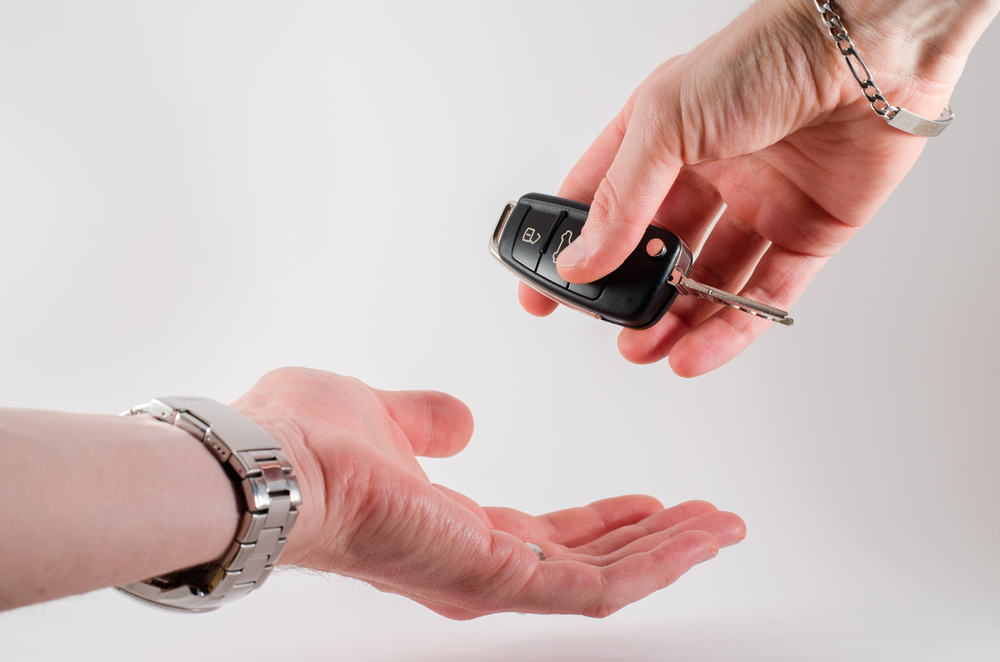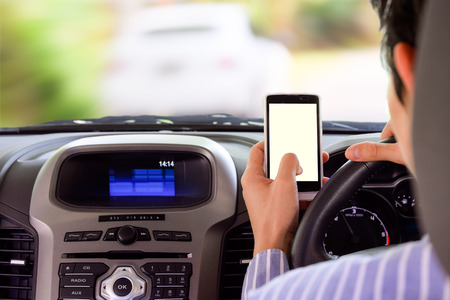
Image: Shutterstock
Vehicle history check expert, HPI, is warning motorists not to fall foul of scams and rip offs when buying a used car. The company’s own HPI Check® has identified that there is a one in three chance of encountering some kind of hidden problem.
Barry Shorto, Head of Industry Relations at HPI commented: “Buying a used car can be stressful enough without having to worry about whether or not the vendor is trying to rip you off. There are a wide variety of potential pitfalls facing used car buyers. It could be that the car is stolen or subject to outstanding finance, it may have been clocked or it could have been involved in an insurance claim at some point. Despite there being so many ways for buyers to be caught out there are also numerous ways to ensure they are prepared and protected.”
HPI has pulled together the following list of scams and problems to be aware of when buying a used vehicle, together with how to avoid making a costly and potentially dangerous mistake.
Clocking – One of the simplest scams going and most common, especially if the car being sold has a digital odometer. An odometer displays how many miles a car has done; if it’s digital it’s just a question of hooking up a laptop with the right software, pressing a few buttons and setting the mileage to whatever you want it to be.
Always go through the car’s service history and check the mileage for each year – see that it goes up steadily and that it doesn’t suddenly drop. Finally, make sure that when collecting the car it shows the same mileage as when it was first viewed. It’s not unknown for the mileage to be reduced for a viewing, then to go back up once the car is being collected.
Cloning – A car is stolen and given the identity of an identical car, which is legitimate. The car probably won’t come with a Registration Document, but if it does ensure it’s not a forgery. If suspicious contact the DVLA to check the authenticity of any paperwork.
Ringing – Ringed cars are like cloned cars, in that they’re stolen then given a new identity. The difference is that the stolen car assumes the identity of a written-off car. This in itself should arouse suspicious, but selling a written-off car isn’t illegal; selling one that’s been stolen clearly is.
To protect against buying a ringer, make sure the chassis number on the car matches the one on the V5C, look for evidence of the chassis plate having been tampered with and ensure you’re viewing the car at the address on the V5C. Buy a ringed car and you’ll lose it, along with your money, if the police catch up with you.
Cut and shut – This is arguably the most dangerous scam of all, as it’s the only one where the car is definitely sold in a seriously unsafe condition. It works by buying two cars, cutting them both in half, then welding those two halves together. Such cars have no structural integrity and in an accident would literally fall apart. Avoid buying a cut and shut by looking closely in the door shuts, around the top of the windscreen, underneath the seats and across the underside of the car for signs of welding.
The hire car scam – This hinges on hiring a car then selling it, which is obviously illegal but people do it anyway. The key is to make all of the usual basic checks, including analysing the car’s Registration Document (V5C). If that’s not to hand, walk away.
Fake escrow accounts – These accounts allow buyers to deposit cash with a third party until a transaction has been completed, so both sides have some level of security. The buyer deposits money in the account and the car vendor will then disappear – with the buyer’s money. Even though it looks professional the escrow service is fake. The key is to see if the escrow service is registered with Companies House and check with Trading Standards too.
Deposit fraud – Some vendors put buyers under pressure to leave an unnecessarily large deposit to secure a car. However, a small deposit will show that you’re equally serious, but always get a receipt. There is still a danger of being ripped off but this is a good way to limit any potential losses.
Barry Shorto added: “While it’s easy to be taken in by many of these scams, it’s also easy to protect yourself by doing just a few key things before buying. This includes buying an HPI Check which allows buyers to always get the fullest possible picture of the car they are about to buy before they part with their hard earned money. The HPI Check® protects buyers against making a costly mistake by revealing whether a vehicle is currently recorded as stolen with the police, has outstanding finance against it, or has been written off. It also includes as standard, a mileage check against the National Mileage Register, with over 200 million mileage readings.
In addition by following these four simple steps will also help prevent drivers being scammed in the majority of cases:
- Always pay with a banker’s draft, not cash. Criminals don’t like banker’s drafts as they’re traceable – cash isn’t.
- View the car at the address on its Registration Document (V5C) and check that the details on this piece of paper match those on the car.
- Don’t rely on just a mobile phone number to communicate with the seller. Get a landline number, although it’s still easy for a scammer to disappear once they’ve given you one of these.
- Ultimately, if you have any doubts about the vehicle or the seller whatsoever, walk away.
For further information visit www.hpicheck.com or call 0845 300 8905




 In celebration of the start of production at FCA’s Jeep Assembly Plant in Goiana, Pernambuco, the Jeep brand introduced the all-new Jeep Compass today in Brazil.
In celebration of the start of production at FCA’s Jeep Assembly Plant in Goiana, Pernambuco, the Jeep brand introduced the all-new Jeep Compass today in Brazil. September marks the first anniversary of Nissan’s partnership on crossovers with user-generated content platform Reevoo. It has produced some fascinating insights into what owners think of their Qashqai, Juke and X-Trail.
September marks the first anniversary of Nissan’s partnership on crossovers with user-generated content platform Reevoo. It has produced some fascinating insights into what owners think of their Qashqai, Juke and X-Trail.
 The new models redesigned from the inside out, including powertrains will be unveiled at the Paris Motor Show.
The new models redesigned from the inside out, including powertrains will be unveiled at the Paris Motor Show. Road safety and breakdown recovery provider GEM Motoring Assist offers the following comment in response to the announcement that motorists caught using their mobile phones while driving will receive £200 fines and six points on their licence.
Road safety and breakdown recovery provider GEM Motoring Assist offers the following comment in response to the announcement that motorists caught using their mobile phones while driving will receive £200 fines and six points on their licence. Nissan has announced a new addition to the Juke, Qashqai and X-Trail line-ups with the introduction of the Nissan Vision range.
Nissan has announced a new addition to the Juke, Qashqai and X-Trail line-ups with the introduction of the Nissan Vision range.